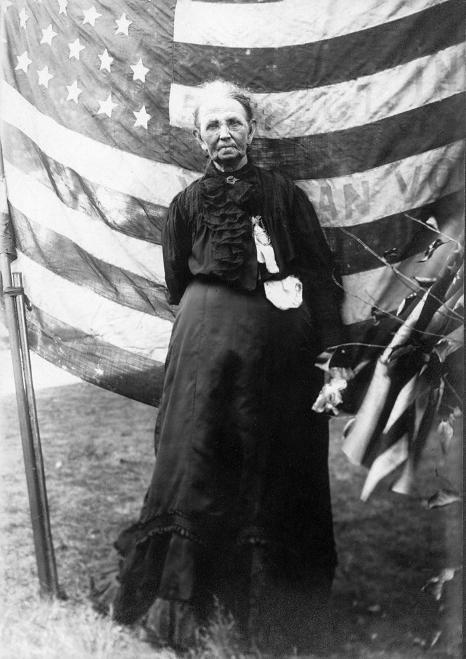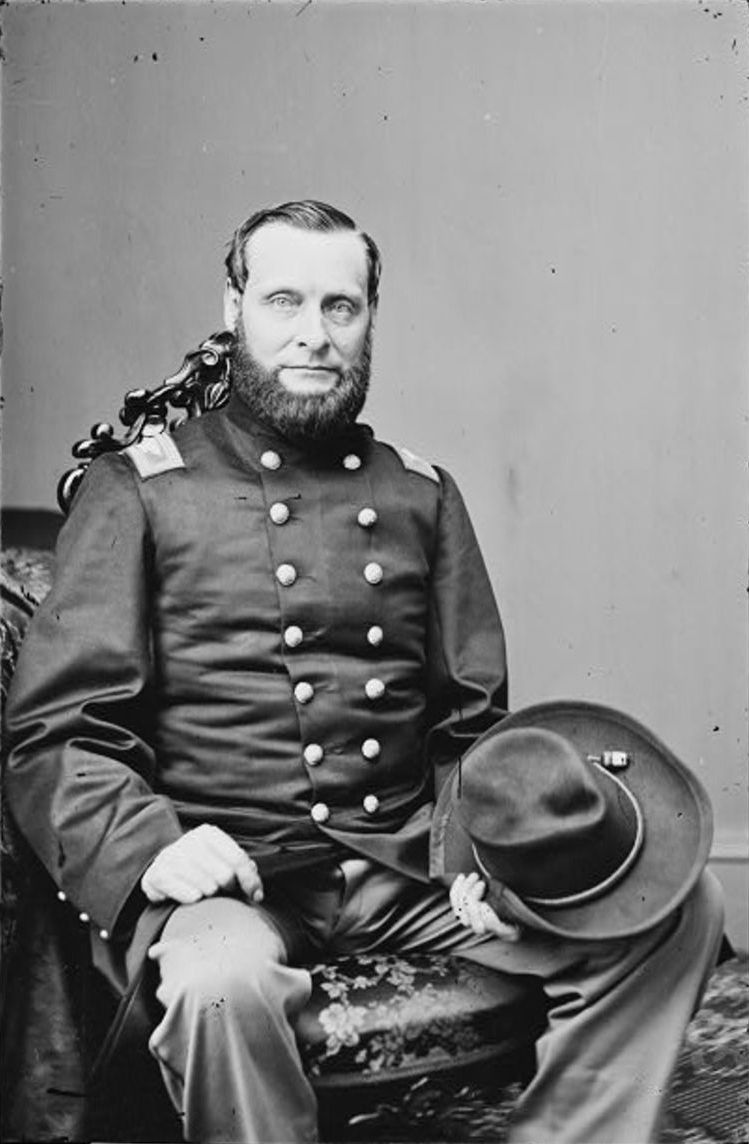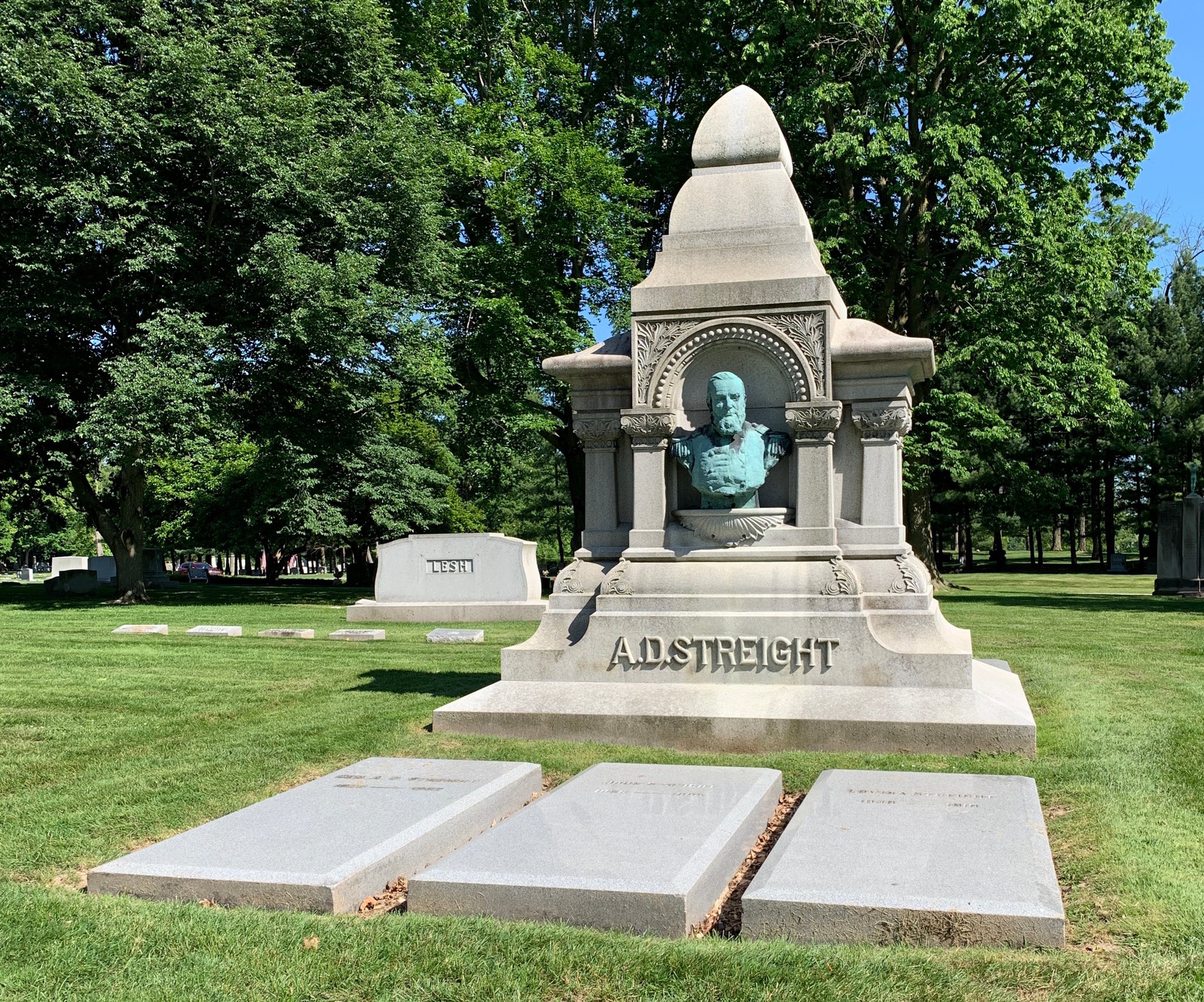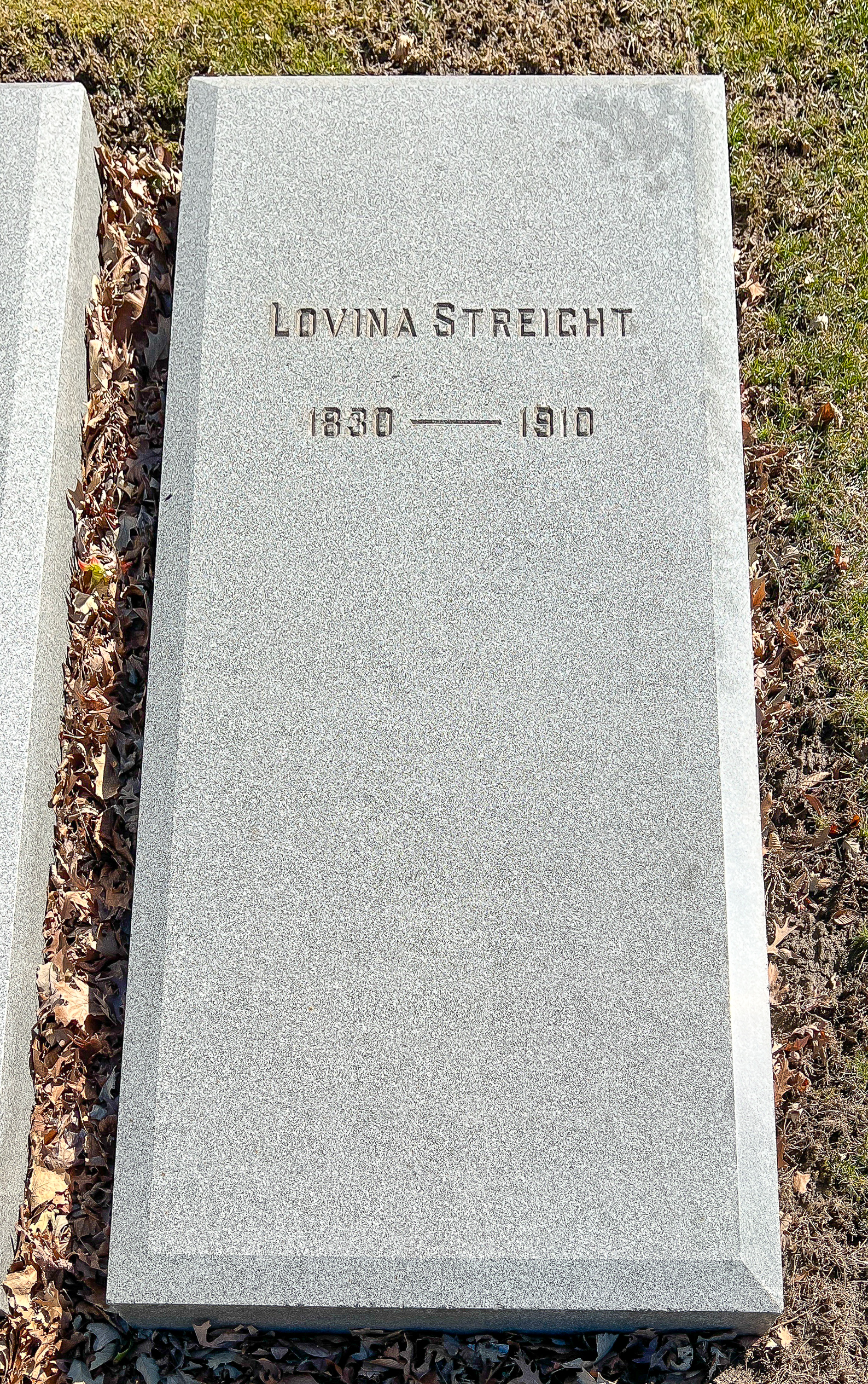Lovina McCarthy Streight
Lovina McCarthy Streight
(6/1/1830 – 6/5/1910)

Lovina McCarthy, known by her friends to be “direct and assertive,” was born in 1830 in Steuben County, New York. In 1849, she married Abel D. Streight, another Steuben County native, and the couple moved to Indianapolis in 1859. Although she gave birth to only one son, John, she became “mother” to hundreds of “her boys and girls,” Civil War veterans of the Indiana 51st Union Regiment, along with their wives, widows and children. They sent her cards and letters almost daily, and she endeavored throughout her life to answer everyone, for all were special and brought back to her the memories of their service and her own service during the Civil War.

When her husband joined the Indiana 51st Regiment, Lovina could have easily remained at home with their five-year-old son. Instead, she went south with her husband, nursing and giving aid and comfort to men at the very front, “unmindful of the bullets which dropped soldiers on every side.” Col. Streight led a group of men on a raid through northern Georgia. After they were captured by Nathan B. Forrest and thrown into a prisoner of war camp in Richmond, Virginia, he helped lead 100 fellow prisoners through a tunnel they had dug with their spoons and pocketknives. But he wasn’t the only Streight to make a daring escape. Lovina was captured three times, exchanged for Confederate prisoners the first two times, and escaped after the third. Newspaperman Anton Scherrer, son of the Waiting Station’s architect, Adolph Scherrer, described it this way: “At Nashville a battle was imminent and Col. Streight sent his wife and 5-year-old son to the North. Seventeen passengers were aboard a stagecoach. In the evening they were stopped by a band of Morgan Raiders. The men of the party were ordered to leave the coach. Before doing so, they left their revolvers on the seats. Quick as a flash, Mrs. Streight gathered up the guns and tucked them away in the five petticoats she was wearing. She kept count as she put them away. There were a dozen. The women were taken to a hotel, and a doctor who said he was associated with Morgan’s men entered the parlor where they were gathered and announced that he had been ordered to make a search. He added the women must undress and to be quick about it too. Mrs. Streight, mad as a hornet, drew one of the revolvers hidden in her petticoats and pointed it straight at the doctor with the remark that she would die before submitting. Fortunately, the major, hearing of the incident, took back the order.” Mrs. Streight then made good her escape. (Indiana History Bulletin)

 Immediately after the war, Col. Streight returned to his publishing and lumber businesses, and set about building a home for he and Lovina modeled after a house he had admired in the south. Their “plantation” house was built at 4121 East Washington, later the site of the Sahara Grotto, from bricks made of the earth excavated for its basement. It was home to many reunions of the 51st from 1876 until several years after Lovina’s death. For several years, it also served as the resting place of Abel, buried in the front yard after his death in 1892, because, Lovina said, “I never knew where my husband was when he lived, so I buried him here. Now I know where he is.”
Immediately after the war, Col. Streight returned to his publishing and lumber businesses, and set about building a home for he and Lovina modeled after a house he had admired in the south. Their “plantation” house was built at 4121 East Washington, later the site of the Sahara Grotto, from bricks made of the earth excavated for its basement. It was home to many reunions of the 51st from 1876 until several years after Lovina’s death. For several years, it also served as the resting place of Abel, buried in the front yard after his death in 1892, because, Lovina said, “I never knew where my husband was when he lived, so I buried him here. Now I know where he is.”
Lovina lived for another 18 years until she became ill in the spring of 1910. After her death and at her request, the 64 survivors of the 51st took charge of her funeral service. With 5,000 attending, she was buried with full military honors, the first Indiana woman to be so honored, wrapped in a flag that had also seen duty on the front lines of the Civil War. Her husband’s body was later moved from the front yard and buried beside her at Crown Hill.
Buried in Section 29, Lot 72; GPS (39.8166673, -86.1720462)

